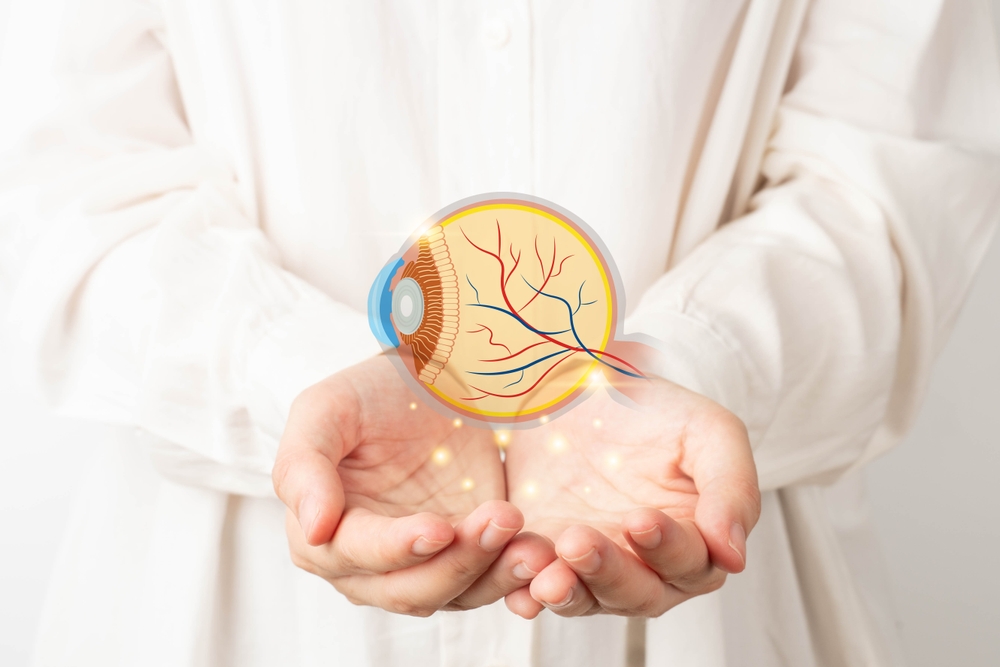
Diabetes affects more than just blood sugar levels—it can also have serious consequences for your vision. Conditions like diabetic retinopathy, glaucoma, and cataracts are more common in individuals with diabetes, making proactive eye care essential. Fortunately, making healthy lifestyle changes can help protect your eyesight and reduce the risk of complications.
Maintain Stable Blood Sugar Levels
One of the most critical factors in preventing diabetic eye complications is managing blood sugar levels. High blood sugar can damage the tiny blood vessels in the retina, leading to diabetic retinopathy. Monitoring blood sugar, following a balanced diet, and taking medications as prescribed can help prevent or slow down the progression of eye-related issues.
Follow a Healthy Diet
A diet rich in nutrients can support overall eye health. Consider incorporating:
• Leafy greens (spinach, kale) for lutein and zeaxanthin, which help protect the retina.
• Omega-3 fatty acids (salmon, flaxseeds) to reduce inflammation and support retinal function.
• Whole grains and fiber-rich foods to help regulate blood sugar levels.
• Vitamin C and E sources (citrus fruits, nuts) for antioxidant protection against oxidative stress.
Avoid excessive consumption of refined sugars, processed foods, and high-glycemic carbohydrates, which can contribute to blood sugar spikes.
Exercise Regularly
Regular physical activity can improve insulin sensitivity, helping regulate blood sugar levels and reducing the risk of eye complications. Activities like walking, swimming, and yoga can improve circulation and overall health. However, individuals with advanced diabetic eye disease should consult their doctor before engaging in high-intensity exercise.
Manage Blood Pressure and Cholesterol
High blood pressure and cholesterol levels can contribute to blood vessel damage, increasing the risk of diabetic retinopathy. Adopting a heart-healthy lifestyle by reducing salt intake, exercising, and taking prescribed medications can help protect both heart and eye health.
Quit Smoking and Limit Alcohol
Smoking increases the risk of diabetic complications, including eye disease, by restricting blood flow to the retina. Quitting smoking can significantly reduce the likelihood of developing severe diabetic retinopathy. Similarly, excessive alcohol consumption can interfere with blood sugar control, so it is essential to consume it in moderation or avoid it altogether.
Protect Your Eyes from UV Light and Digital Strain
Exposure to ultraviolet (UV) rays can accelerate eye damage, so wearing UV-blocking sunglasses outdoors is crucial. Additionally, prolonged screen time can contribute to digital eye strain. Following the 20-20-20 rule (looking 20 feet away every 20 minutes for 20 seconds) can help reduce strain and discomfort.
Prioritize Regular Eye Exams
Even with a healthy lifestyle, diabetic eye disease can develop without noticeable symptoms. Comprehensive eye exams allow for early detection and treatment of issues before they progress. A dilated eye exam can help identify changes in the retina, allowing your eye doctor to take preventive measures.
Schedule Your Comprehensive Eye Exam Today
Taking control of your lifestyle choices can have a lasting impact on your diabetic eye health. By maintaining stable blood sugar levels, following a nutrient-rich diet, exercising regularly, managing blood pressure and cholesterol, and quitting smoking, you can reduce the risk of vision complications. However, regular eye exams remain the most important step in early detection and prevention.
If you have diabetes, schedule a comprehensive eye exam with Gee Eye Care to take proactive steps in protecting your eyesight. Visit our office in Missouri City, Texas, or call (281) 778-9912 to book an appointment today.




